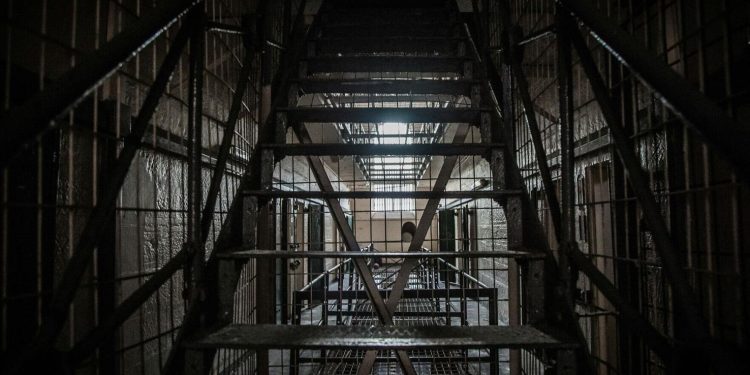By Lauren Jessop | The Center Square contributor
(The Center Square) – Advocates challenging the constitutionality of life sentences without parole for felony murder await a decision from the Pennsylvania Supreme Court in what could be a landmark case.
Meanwhile, state legislators explore the merits of restorative justice programs.
Derek Lee, now 36, was convicted in 2016 of second-degree murder for his involvement in the 2014 fatal shooting of Leonard Butler during a robbery attempt in Pittsburgh. Although Lee’s accomplice fired the fatal shot, he was sentenced to life without parole for his involvement.
The court heard oral arguments in the case on Oct. 8.
In April, Lee’s attorneys submitted an appellant’s brief along with 17 supporting briefs, including one from Gov. Josh Shapiro, arguing that Lee’s sentence is unconstitutional.
It states that “under current law, an offender who points a gun to a person’s head and pulls the trigger receives the same mandatory life sentence as the getaway driver of a robbery where a co-conspirator unexpectedly shot and killed someone.” Shapiro added that both offenders should be severely punished, but not with the same penalties.
Pennsylvania and Louisiana are the only states mandating life without the possibility of parole for convictions of second-degree homicide, also known as felony murder. Advocates refer to life without parole as “death by incarceration” and want to see sentencing updated to better reflect degrees of involvement.
Families Against Mandatory Minimums is among the groups that filed briefs in support of Lee.
The group’s Pennsylvania State Policy Director, Celeste Trusty, told The Center Square she anticipates the court will respond early next year.
The consensus across the movement, she said, is a desire for legislation to rewrite the criminal code, which would allow 1,100 inmates like Lee to seek parole at the appropriate time or be resentenced.
Trusty stressed that parole is a very intentional process, and “this is not a case of just opening the doors and having all kinds of people leave the prisons all at once.”
Pennsylvania needs to find ways to inject mercy into our justice system, she said, noting this approach protects public safety, while addressing the long-lasting impacts of the tough-on-crime laws from the 1980s and 1990s.
Positive responses from the Supreme Court and support from the legislature and communities will help make these options a reality, Trusty said.
“It’s just fundamentally unfair to punish someone for the rest of their life for something that they did not intend to do,” she said.
State legislators have been exploring restorative justice programs, which aim to hold offenders accountable, rehabilitate them and provide healing for victims.
The House Judiciary Committee held an informational hearing on the subject in April where practitioners of restorative justice programs spoke about experienced successes, recidivism and overall satisfaction from victims who participated in the process.
Many agree it is not a “cure-all” and not appropriate in all situations, but it still establishes accountability in a community in which the traditional justice system cannot.
Written testimony by Dr. Chris Kimmenez, executive director of Healing Communities PA, or HCPA, said the organization has provided restorative justice practices to the Philadelphia District Attorney’s Office in partnership with Restorative Cities Initiative since 2020.
Kimmenez says data shows the individuals they serve have an average recidivism rate of 19% compared to 56% with traditional prosecution, transforming many lives in the process.
“I’m not saying every incident or case can be or even should be resolved this way, but many can and that will go a long way to strengthening our communities,” Kimmenez said. “This is a viable evidence-based approach that works, and we should do all we can to utilize it.”
In written testimony submitted by Philadelphia’s Assistant District Attorney Paul Tadross, he said the office has conducted restorative justice programs with positive results and supports legislative efforts to expand them to the rest of the Commonwealth. He included a list of policy recommendations.
In June, the committee approved, with bipartisan support, House Bill 1849, sponsored by Rep. Christopher Rabb, D-Philadelphia. If passed, it would permit judges to use restorative justice as a sentencing alternative.
The Center Square’s attempt to contact Democratic state Rep. Tim Briggs, Majority Chairman of the committtee, was unsuccessful. A spokeswoman for Repubican Rep. Rob Kauffman, minority chairman of the committee, said he was unavailable for comment.




